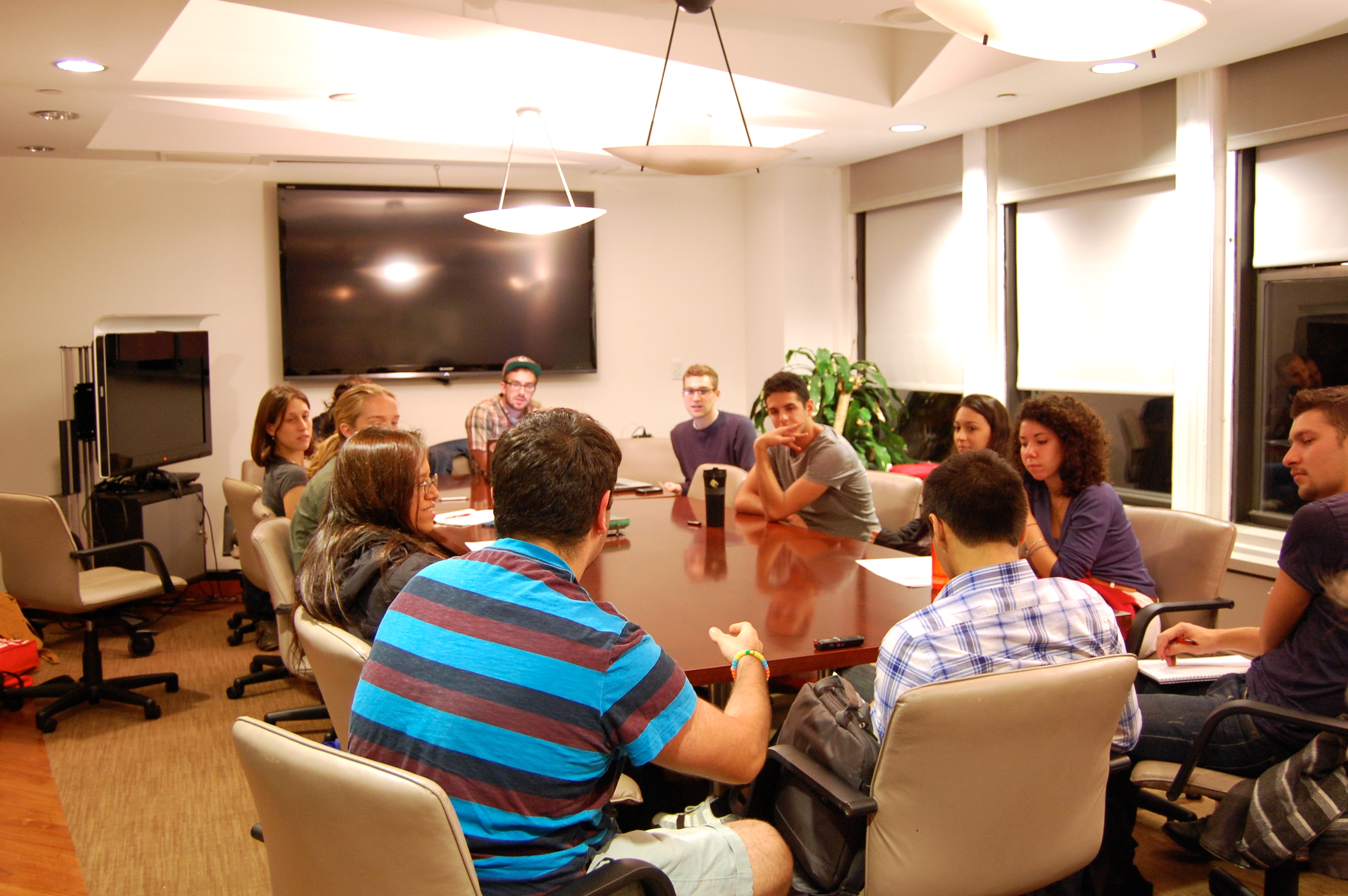Inspired by problems rooted in the public school system, NYU Students for Education Reform are pursuing change in the classroom as a means to give America’s youth equal access to a quality education.
For Alison Newell, CAS senior and outreach coordinator at NYU SFER, the quest for equality in the classroom began when she learned about the prison pipeline phenomenon. Poor students, particularly African-American youth, are funneled through the nation’s public school system like broken parts on a beltway. Some students graduate, but most drop out and some end up in jail. Local prisons then look at the schools’ dropout rates to gauge the number of cells needed.
“Education should be a human right,” Newell said. “Even though we say it’s a civil right in our country, most of the students are getting a terrible education because we’re not funding it and we’re not making changes to it that would actually benefit children.”
After witnessing the mediocre performance of his middle-class high school, SFER vice president and CAS senior Andrew Barron, said he worries about the success of students in poorer neighborhoods.
“I’ve always believed in equal opportunity and feel that education is the biggest way to achieve that,” Barron said. “We’re just failing so many kids.”
NYU SFER’s mission is to close the achievement gap by raising awareness of the state of education on a local and national level. On Oct. 22, the club held a teach-in at NYU Steinhardt’s Pless Hall to discuss the reform strategies of all five presidential candidates.
“Our goal was to paint everything in a broader picture and where candidates stand in context with other candidates,” said Steinhardt senior and club president Sam Williams. “I think people left the event with a better knowledge of what was going on-, on both a national and local [level] of policies in terms of education.”

This semester, NYU SFER is focused on the future of teacher evaluations in New York City, a debate where $300 million of education funding hinges on an agreement between the Department of Education and the city’s teachers’ union. Both have been debating for months about whether or not evaluations should be conducted by peers, by the school principal, or be based on students’ standardized test scores. If they can settle on a plan by mid-January, the city will receive a four percent increase in their education budget.
“We want them to find a middle ground so the kids can benefit,” Williams said. “If there is more widespread knowledge throughout the community, then there will be more pressure on each side to reach an agreement.”
For NYU SFER, the college community will play an instrumental role in ensuring the city’s public schools receive the $300 million, a sum of money that could lead to improvements in infrastructure or new supplies like computers. NYU SFER hopes to join forces with other SFER city chapters, like those at Columbia University and The New School, to plan a rally or awareness campaign to recruit more college students to the cause.
“We’re the adults who are closest to those kids age-wise,” Williams said. “We’re advocating for children because their voices cannot always be heard.”
A version of this article appeared in the Friday, Oct. 26 print edition. Kristina Bogos is a staff writer. Email her at [email protected].

























































































































































